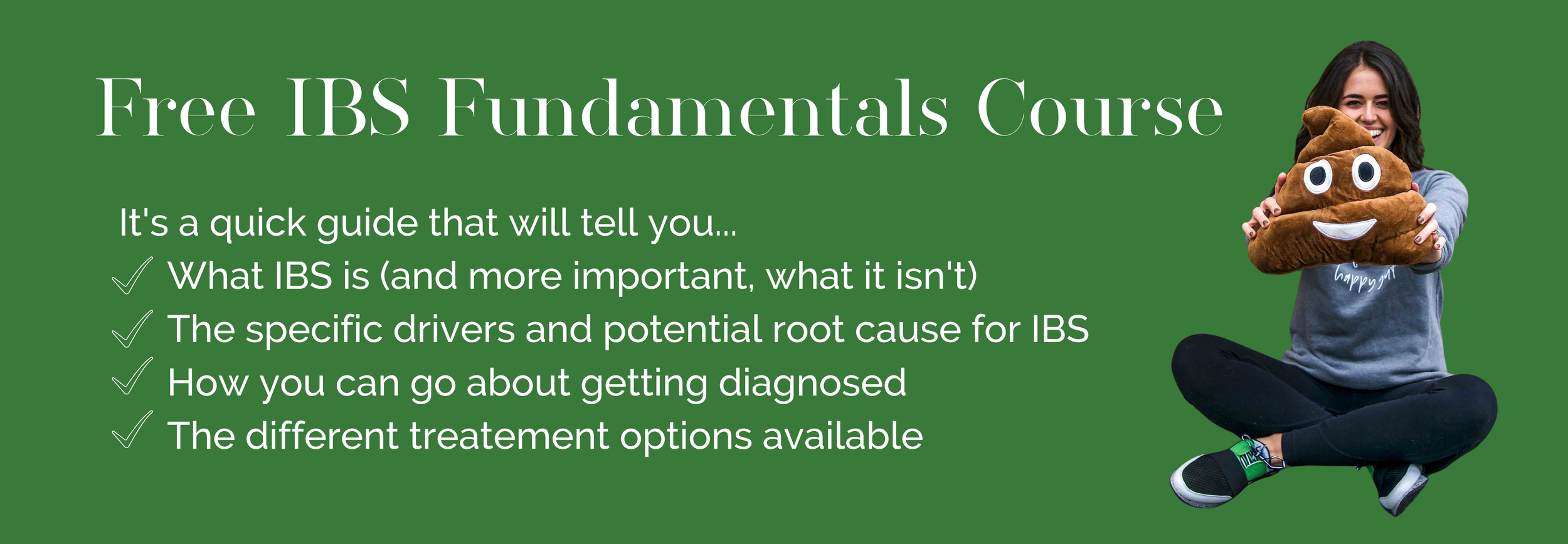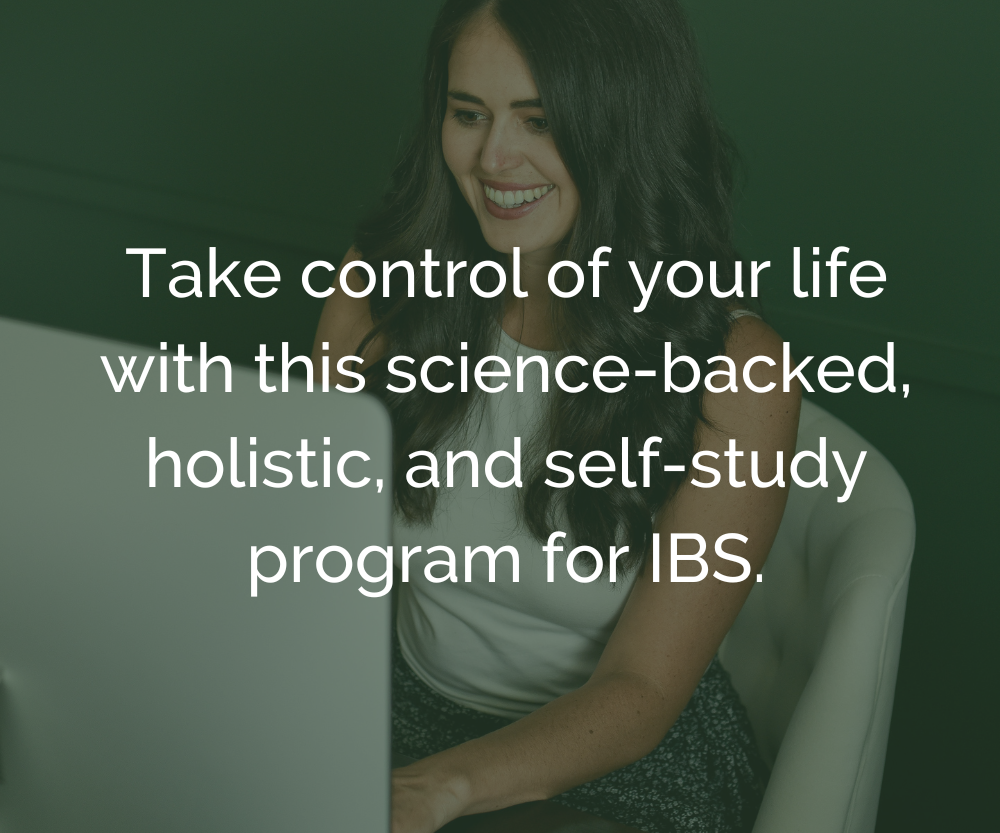Are Digestive Enzymes Good for IBS?
Supplements are a hot topic in the IBS community. We want relief and will do almost anything to get it. I already address probiotics for IBS in this article, so I wanted to address the next requested supplement: digestive enzymes.
What are digestive enzymes?
Digestive enzymes are proteins that regulate chemical reactions in the body that are involved in digestion. They break food down so that nutrients can be absorbed by the body and utilized. Digestive enzymes are present throughout the GI tract, from the mouth to the small intestine, and each enzyme is specialized to break down either fats, carbs, or proteins. Below are the more common digestive enzymes:
amylase — breaks down complex sugars into simple sugars
lipase — breaks down fats into fatty acids and glycerol
pepsin — breaks down proteins into smaller peptides
lactase — breaks down milk sugar
trypsin — breaks down protein into amino acids
Even though the body creates and secretes digestive enzymes, there’s an idea that supplemental digestive enzymes could be helpful for those with digestive disorders, like IBS. Much like probiotics, many enzymes are sold with the claims that they can alleviate digestive issues like constipation and diarrhea, and that they can help the body absorb nutrients more effectively. Sounds great, right?
What does the research say?
Much like probiotics, there is very limited research to support the effectiveness of digestive enzymes for IBS. There is also very poor regulation of the industry, so not all enzymes will be created equal or do what they say they’re going to do. However, that doesn’t mean that they aren’t effective at all. There is limited research to suggest they can be helpful.
If you’re new to IBS and are still working to find your trigger foods, it would be best to wait and choose a digestive enzyme after because the type you choose will depend on what triggers your symptoms the most. There is no harm to taking most digestive enzymes, but you wouldn’t want to waste your money on something that’s not giving you a return.
What’s your poop personality? Find out here!
What are my options?
Similar to probiotics, it’s not wise to just grab a random digestive enzyme supplement from the shelf and start taking it. You want to choose a brand that has been shown to have some positive effect for IBS symptoms and contains the specific digestive enzymes you need for foods that trigger your symptoms. You want to take your enzymes at the beginning of meals so that they can be released in time to start breaking down the food you are eating.
For dosage and specific instructions, always refer to the label on the supplement. And, as always, talk with your GI doc or dietitian before starting a supplement. Here are a few brands that have shown a level of effectiveness for IBS:
Viokase
Viokase is made up of lipase, protease, and amylase, so it works like a general enzyme supplement. It is used mostly for those with pancreatic enzyme insufficiency (the body isn’t secreting the enzymes it needs), but may be able to improve digestion for those with IBS. Again, research is lacking, but there is a small amount evidence to suggest this will help with digestion.
Biointol
Biointol contains a mixture of enzymes, including protease, amylase, amyloglucosidase, lipase, cellulase, lactase, and pectinase, as well as the soluble fibers inositol and beta-glucan. A study showed that Biointol improved bloating, flatulence and abdominal pain, and slightly increased urgency for bowel movements in some IBS patients. However, there wasn’t much of an effect for other IBS symptoms.
Lactase
Lactase is a common digestive enzyme supplement due to the prevalence of lactose intolerance. Lactase is very specific to milk sugars, so it can be used before eating a higher lactose meal, like a bowl of ice cream or macaroni & cheese. Lactaid is a common over the counter option if lactose is a trigger for you. Make sure to follow the instructions on the label for dose and timing.
Alpha-Galactodiase
Alpha-galactodiase is the enzyme used to break down oligosaccharides, which are found in wheat, garlic onion, beans, and other pulses . These are common trigger foods for those with IBS, found in the subgroups fructan and GOS. This enzyme may also help with other cruciferous vegetables, including broccoli and cabbage. A study showed a significant reduction in bloating, abdominal distention, and gas when taken with a meal high in these hard-to-digest carbohydrates. A common brand for this type of enzyme is Beano.
Bottom Line
As always, when considering supplements for your IBS management, it’s best to work with your GI doc or dietitian. Once you’ve completed the low FODMAP diet and have identified your trigger foods, you may be able to incorporate one of these enzymes, depending on your needs. I wouldn’t recommend that you completely rely on them, but they could be helpful when you’re going out to eat, traveling, or enjoying a favorite food that triggers symptoms.
If you’re looking for more information on what you can do to get your symptoms under control, the MASTER Method group program for women with IBS may be exactly what you’re looking for!
Are you frustrated with your IBS symptoms? Do you desire to be confident in your food choices? Do you want to have a healthier relationship with your body and diet? Are you ready to take control of your IBS?



